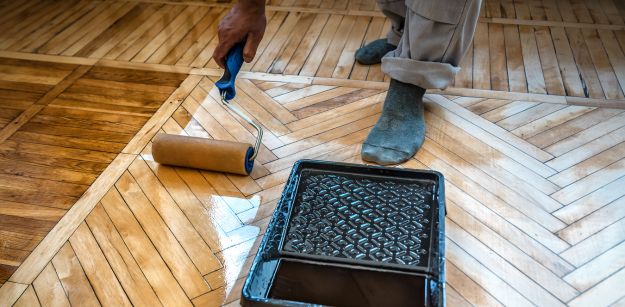When it comes to designing and maintaining a space, the floor often plays a critical role. Selecting the right floor coatings are essential not only for aesthetic appeal but also for practicality and durability. With a plethora of options available, understanding the types, uses, and key factors to consider can help one make an informed decision that suits their needs and preferences. This blog provides a deep insight on floor coatings to help people choose the type that will suit the best for their house.


Types of Floor Coatings
1. Epoxy Coatings
Epoxy coatings are versatile and widely used for their durability and chemical resistance. They provide a glossy, seamless finish that’s perfect for industrial settings, garages, warehouses, and even residential spaces. Epoxy coatings can handle heavy traffic and protect the underlying concrete from damage.
2. Polyurethane Coatings
Polyurethane coatings are notable for their exceptional capacity to endure UV rays, rendering them a preferred choice for outdoor areas. Their impressive durability and flexibility further qualify them for places subjected to temperature changes. Commercial settings, retail spaces, and areas at risk of spills can all gain advantages from the application of polyurethane coatings.
3. Polyaspartic Coatings
Polyaspartic coatings, a subset of polyurethane coatings, are renowned for their rapid curing process. These coatings are a perfect fit for projects requiring swift results, such as renovating retail spaces or areas with tight schedules. Their quick application, coupled with durability, makes them an ideal option for high-traffic zones.
4. Concrete Stains
Concrete stains offer a unique way to enhance the appearance of concrete floors. They penetrate the concrete’s pores to create a permanent, translucent color that won’t peel or flake. Stained concrete is commonly used in residential interiors, restaurants, and retail spaces where aesthetics are a priority.
Uses of Floor Coatings
1. Industrial Spaces
Factories, warehouses, and manufacturing facilities benefit from floor coatings that can withstand heavy machinery, chemicals, and constant foot and vehicle traffic. Epoxy and polyurethane coatings are commonly used here.
2. Commercial Areas
Retail stores, restaurants, and offices require coatings that are both durable and visually appealing. Polyaspartic coatings or stained concrete can offer the perfect balance of aesthetics and function.
3. Residential Spaces
In homes, floor coatings are often applied in garages, basements, and even living areas for a modern and polished look. Epoxy and stained concrete coatings are popular choices for residential applications.
Key Factors to Consider
1. Durability and Traffic
One should assess the level of foot and vehicular traffic the floor will endure. High-traffic areas demand coatings that can withstand the wear and tear without deteriorating.
2. Chemical Resistance
If the environment involves exposure to chemicals or spills, one must choose a coating that offers excellent chemical resistance to prevent damage.
3. Aesthetic Appeal
An individual can consider the desired appearance of the floor. Epoxy coatings provide a glossy finish, while stained concrete offers a unique and natural look.
4. Installation Time
For projects with tight timelines, polyaspartic coatings are a good choice due to their quick curing time.
5. Maintenance
One should consider the cleaning and upkeep the coating will require over time; as certain coatings demand more maintenance than others.
Conclusion
Picking the right floor coatings is important. One must think about how strong it is, what they are going to use the space for, how it looks, and how much work it needs to stay nice. Every project is different, so it is necessary to ensure to pick what’s best for what they need. Whether it’s a home, a store, or a big place, choosing the right floor coating matters to make the space work well and look good.



